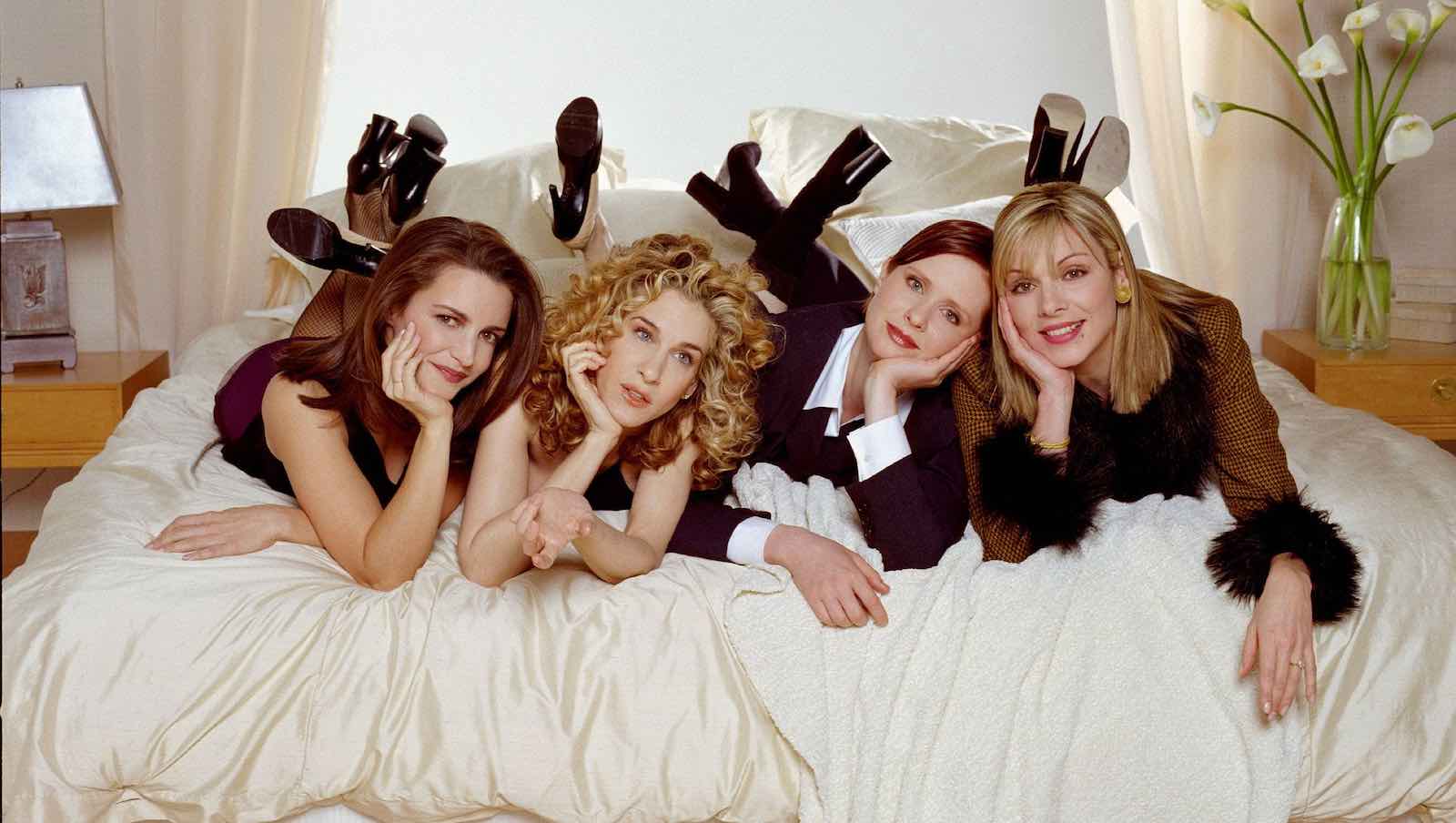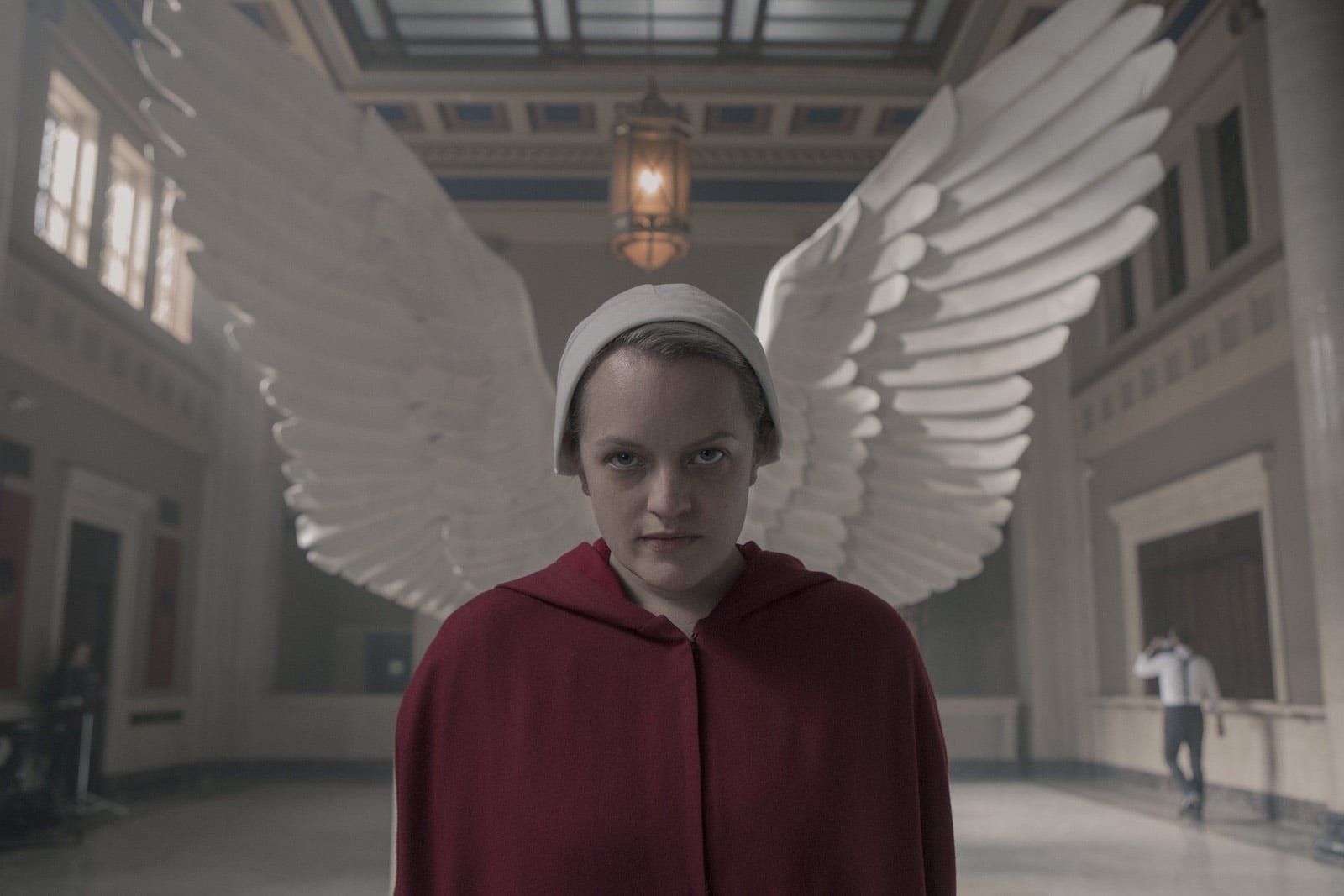
‘Sex and the City’ vs. ‘The Handmaid’s Tale’: Female empowerment
Last year, SNL released a parody sketch turning The Handmaid’s Tale into an episode of Sex and the City and quite frankly it was hilarious. Not only did it brilliantly intertwine the two shows, but it also highlighted the frivolity of the white privilege experience of the infamous four New Yorkers.
Although at the time Sex and the City stood for female empowerment, in the modern world their shallow lifestyle borders between dumb and straight-up offensive. The Handmaid’s Tale on the other hand – although at times coming across as misery porn – is timely, poignant, and inspiring as it is terrifying, exploring female characters displaying strength & bravery in the face of their oppressors.
Although the two shows are markedly different, they perhaps show that Gen X and millennial women have grown to embrace different representations of female empowerment. To elaborate on this idea further, we took a break from our weekly Handmaid’s Tale viewing to bingewatch Sex and the City. Here’s what we learned.

The 90s were as shallow as a Kardashian in a kiddie pool
It’s no secret that now in the 2010s our zeitgeist paranoia has reached an all-time high; every day is a collage of sad polar bear pictures, dick pics, and terrifying abstracts, all being injected into our skulls like a Pulp Fiction needle.
But things weren’t always so bad. If like us you were born before the technology boom and grew up in the 90s, you’ll know the future was bright. Aside from the crazies who thought we were going to die in 2000 (thanks, Prince) the turn of the millennium was a supposed age of empowerment for “working women”, full of over-padded shoulders, semi-toxic birth control pills, Vodka Blues, and kitten heels.
Individualistic third-wave feminism was in full force, the Spice Girls were famous, and shows like Sex and the City reaffirmed our belief that we could be loud-mouthed, successful, sex-crazed boss-ladies if we wanted to be. And for those who were adults in our golden age of chunky highlights, their fictional worldview was shaped by this rosy ideal. And they’ve continued to hold on to that expired jewel.

Empowerment is empowerment is empowerment
Modern TV is dark as hell. Everyone’s always getting chopped up or attacked or oppressed or murdered by life-like, Western robots. It’s a rough world, and our version of female empowerment comes from interesting women navigating these situations.
But back in the day, TV was suitable for all ages. The fictional, televised 90s were generally a sanitized white-wash of apolitical, feel-good sitcoms full of upper-middle class people in New York. And Sex and the City was perfect. It gave its fans the perfect amount of caricatured female empowerment and cemented it together with the toffee-like grease of pro-capitalist consumption.

And sure, 70s era second-wave feminism was built on a foundation of sisterhood and community to champion fellow women, but who needs that when you can embrace a patriarchal model of individual wealth and destroy other women’s success? (Catfights are fun, amiright ladies?)
And while this brand of cherry-picking feminism apparently seemed pretty sustainable (or preferable?) to SATC’s viewers, shows like The Handmaid’s Tale are ultimately about women’s perseverance and survival – goals which require a real sisterhood to achieve.

Comfort is the enemy
Sex and the City only works in a universe where women are unquestionably successful, completely autonomous, and suspiciously rich.
It was the perfect life fuel for a time when women measured their worldly success by how much they could consume for themselves (rather than what they could give back) free from any sort of imposed limitations. It’s not about establishing yourself as a woman – it’s about establishing yourself as a woman in a man’s world.
But as the waves of religious and conservative repression have rolled in and alt-right trolls so lovingly coddled by the money-soaked hands of social media tear women down, the fantastical concept that we’re free to sip cosmos and shit-talk Chanel all day without a care in the world seems muddled at best. Suddenly we don’t feel so comfortable any more, which means it’s time to . . .

Fight!
If there’s one thing The Handmaid’s Tale does, it’s make women angry. Sex and the City showed you what you could be, The Handmaid’s Tale shows you what you must be. It teaches us what our suffragette ancestors already knew – your life is only as important as the cause you devote it to.

The future is female
So why did generational tastes change so dramatically? The answer is that the world has changed drastically in the past twenty years. Discomfort has changed the way we tell stories, who tells them, and what those stories are about.
It’s not enough to be a woman going through life, conducting yourself by the same rules your 90s, smart-mouthed cable characters did. The world is more complex than those characters could ever accept and we must leave those pale imitations of us in the past.



